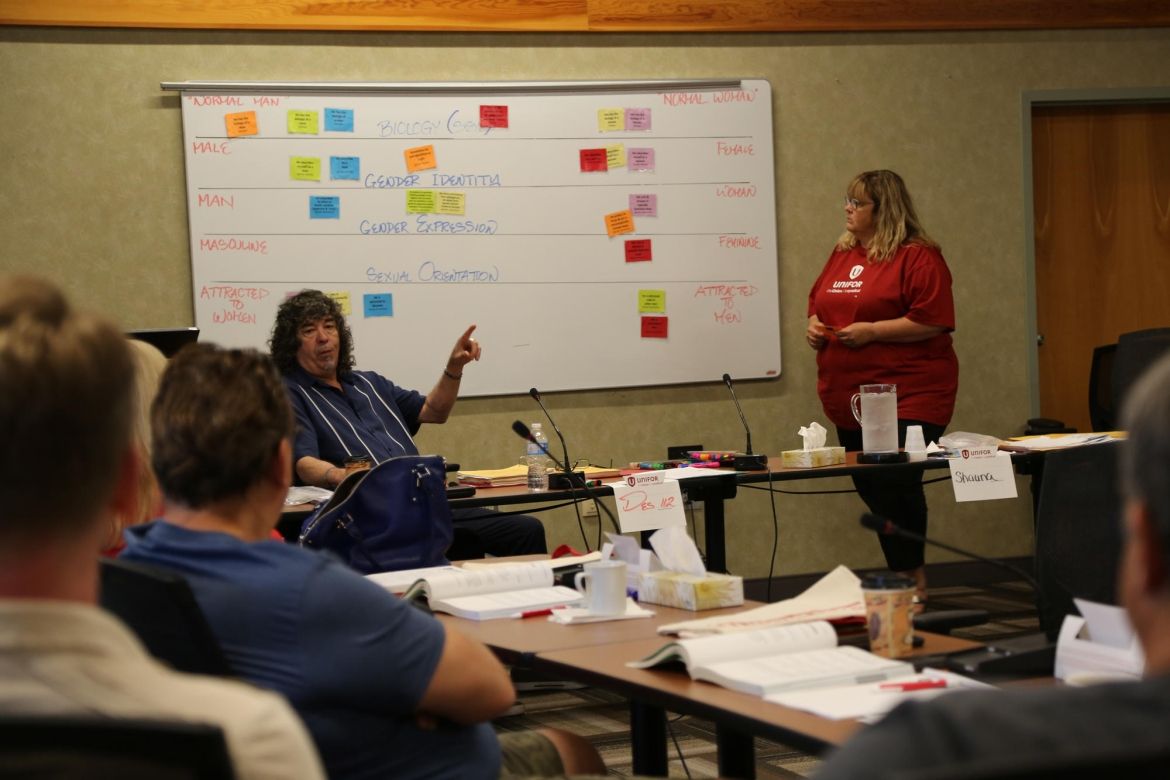
Share
A commitment to equity, inclusion and diversity starts with each one of us, members, staff and elected officers, and education is an important part of this fulfilling commitment. Just last week members and national staff representatives attended the Unifor week-long human rights training at the Port Elgin Education Centre to take action on Unifor’s important equity agenda.
Centered on the theme that “Human Rights are Workers Rights”, the training focused on topics of racism, sexism, homophobia, transphobia and discrimination against people with disabilities. The week- program is a must for leadership and activists in our growing, diverse union.
“This training aims to explore human rights issues from a working class perspective, and to encourage open and respectful dialogue about difficult issues faced in the workplace,” said Christine Maclin, Director of Human Rights. “Attending the union’s education program is just one of the many ways members and staff are taking on human rights issues and this helps makes our union stronger.”
The training spent some time looking at the treatment of workers, migrant workers and the intersectionality of power, meaning that it examined how one’s identity or the multiple identity of a person, based on race, gender, disability, sexuality, religion, language can influence a worker’s experience with oppression in varying ways. Dismantling myths and stereotypes about certain groups of people by presenting facts and statistics was another focal point of the training session. Overall, the course provided an opportunity to develop the skills and perspectives that every trade unionist needs to build a stronger, more inclusive union.
Education is a powerful means to challenge stereotypes and myths and to unlearn racism. The Unifor website, unifor.org/equity has several tools and resources, everything from human rights legislation, to union policy statements and model language samples, guides and posters, for addressing workplace discrimination and harassment concerns.
To learn more about Unifor’s great education program and how you and your local can organize a one-day, three-day or week-long human rights course in your area please contact the Education Department at @email.
There is also an up to date listing of programs and upcoming courses on the website at unifor.org/education. Members located in Quebec should also visit the Unifor Québec website to see programs and courses offered in Québec.



